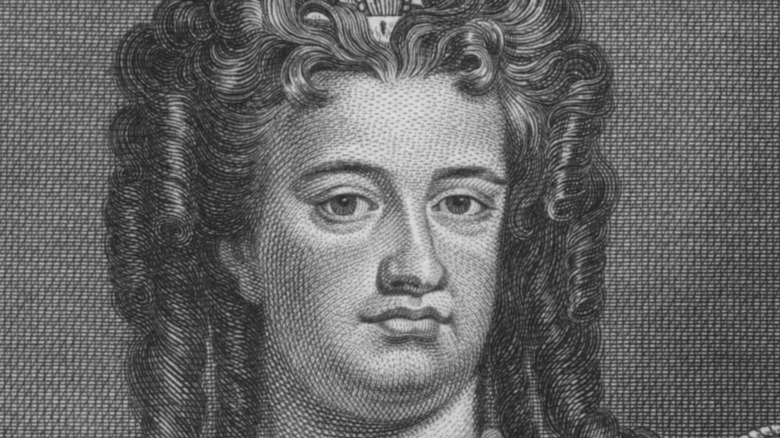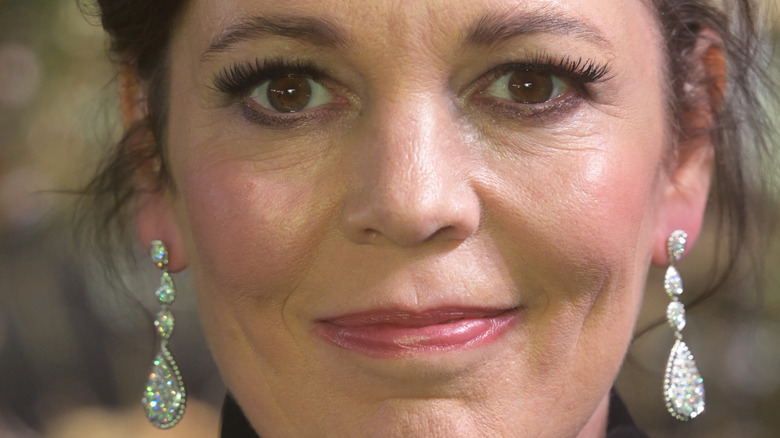How Historically Accurate Is The Movie The Favourite?
Released in 2018. "The Favourite," a movie starring Olivia Colman, Emma Stone, and Rachel Weisz, and directed by Yorgos Lanthimos, scored a slew of awards and even more nominations for both the acting and production quality, per IMDb. Based in the 16th century, the film told the story of a love triangle of sorts, with Britain's eccentric Queen Anne squarely in the middle. Queen Anne ruled between 1702 and 1714, and she is the first sovereign monarch of Great Britain, reigning over both England and Scotland as one United Kingdom, according to the BBC. She was also the last of the Stuart dynasty.
Central to the story depicted in "The Favourite," though, is the tension between Anne, played by Colman, her long-time friend Sarah Churchill, the Duchess of Marlborough, played by Weisz, and Abigail Masham, portrayed by Stone. Among many other historical incidents, it's implied that Queen Anne had a romantic relationship with Churchill, threatened by the arrival of Masham. As a result, Churchill threatens to reveal the affair, and in doing so, bring down the queen.
Not very
Despite all the fine qualities of Lanthimos' film "The Favourite," historical accuracy is not one of them. According to Time, the real Sarah Churchill knew Abigail Masham prior to Masham's arrival at court, and although it is known that Queen Anne behaved erratically by the standards of the time, she owned no pet rabbits like we see in the movie. Queen Anne really did have a husband, although we never see him on the screen. There's also no evidence that Masham ever tried to poison Sarah, as the movie depicts.
Where the film most diverges from history, though, is in the alleged love affair and ensuing jealousy between the three women. No question the women were close, and it is known that Anne wrote to Sarah such things as, "If I writ whole volumes I could never express how well I love you. ... Unimaginably, passionately, affectionately yours," per Vanity Fair. That may sound romantic, but flowery language was not uncommon between platonic friends at the time, and was in fact encouraged among women. Churchill did, in fact, leverage these letters for political capital, but in truth, the breakdown of their true-to-history relationship was far more politically motivated than the movie suggests.

